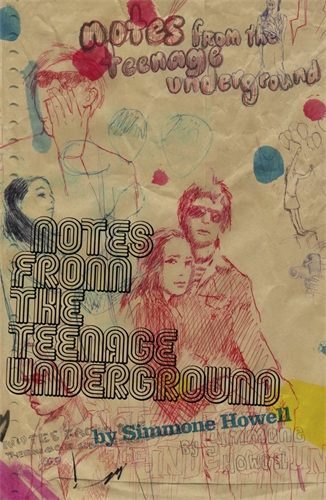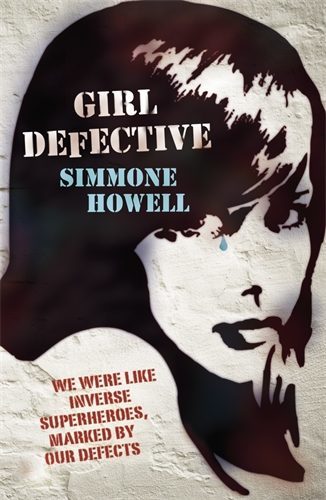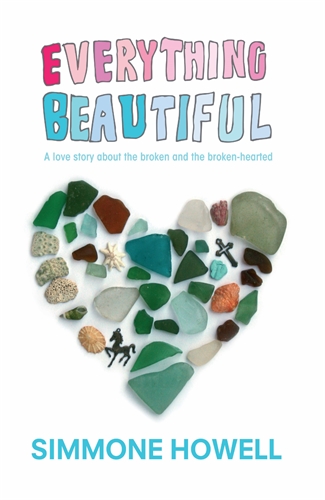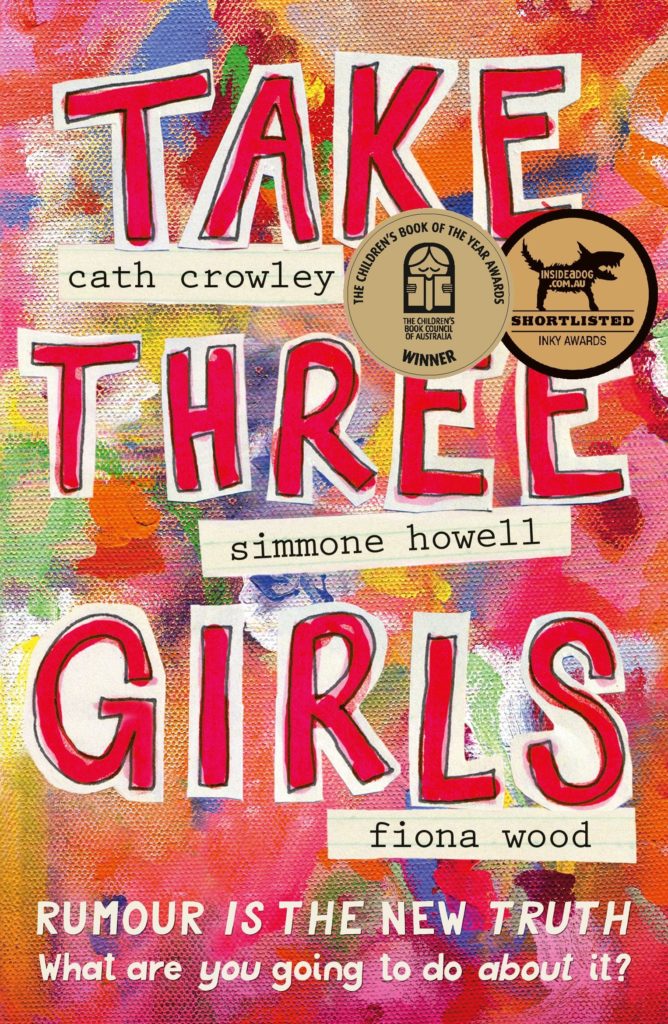



FWA: We recognise young adult writing as a relatively new development in publishing. How would you describe the attributes of this new writing in comparison to the earlier works devoted to young adult readers – is it distinctive in subject matter, style, genre or other matters entirely, or perhaps a combination of things?
SH: If you wanted to you could trace YA back to books like Catcher in the Rye or The Bell Jar – those close, almost cloying voices relating the calamities and epiphanies that constitute coming of age. Since the late 1960s teen fiction has been a thing. In the 1970s, writers like Paul Zindel, Judy Blume and S.E Hinton knew exactly who they were writing for. In the 1980s the capitalist possibilities of teen romance exploded.
When I think about YA, I find myself thinking about marketing and media and the commodification of youth. Sometimes contemporary YA can look like a big slick beast. I remember seeing a copy of Twilight on the teen shelves at the library and thinking ‘huh’ (- I was a thirty-something and you might wonder what I was doing looking at the teen shelves, but this is one of YA fiction’s enduring traits: stories of self-knowledge, whatever frame-work/genre they’re placed in are evergreen.) Often I’ll read adult literary fiction and think, well, what makes this ‘adult’ and not YA? Like Curtis Sittenfeld’s Prep or Craig Silvey’s Jasper Jones or Emily Bitto’s The Strays. Maybe the easiest way is to ask ‘who is this book for?’ If the answer is ‘teenagers’, then it’s probably a YA book. If you’re okay with writing for teenagers then you’re probably okay with being a YA writer.
Young adult fiction is a category that crosses genres. It is a category in the way that children’s fiction is a category. It is a genre in the way it is a collection of like culture, in the way it incorporates certain conventions, but it is not a genre in the way that, say, crime writing is a genre. YA fiction is political – movements such as Own Voices, We Need Diverse Books and LoveOZYA are examples of how the category has responded to the times. I don’t think it’s possible to write young adult fiction without having some awareness of the market – but too much awareness can be stifling. I think about these contradictions way too much!
FWA: In your course Writing YA Fiction, you will be workshopping ideas for planning, plotting and polishing young adult writing. Are the techniques you’ll consider here specific to YA or are they also generally applicable disciplines for writers?
SH: While some ideas will be about looking at ways to access your teenage self, most of the techniques covered in this course will be about how to tell a good story well. What young adult fiction offers is a freedom of genre. What is genre? Is it liberating or constricting? What happens when genres are crossed or mashed? I’m keen to show all the possibilities of YA, and work against the misguided conception that YA has to be simple or dumbed down or safe.
FWA: You have two great guests joining you for Writing YA Fiction. Tell us a little about them.
SH: My guests on this course are Bec Kavanagh and Dr Penni Russon, fellow writers, friends and colleagues. Both guests bring their super-specialist skills to the party. Bec Kavanagh is the current schools programmer for the Wheeler Centre and implemented the schools programme for the Stella Prize. She is PhD candidate at La Trobe University researching the body as represented in Coming of Age texts. As a critic and reviewer for the Saturday paper, Books & Publishing and other media outlets, and as per her sideline in writing educational material for books, Bec knows the YA territory implicitly, trends and tropes, what flies and what won’t. Dr Penni Russon is a senior lecturer in creative writing at UTS. Her PhD ‘on the reparative poetics of youth mental health in graphic medicine’, explored the therapeutic effect of digital storytelling with a particular focus on teenagers. She is the author of magic-in-the-real-world books such as The Endsister, Only Ever Always and the Undine trilogy. I’m excited to be facilitating this course for a second year and look forward to meeting and working with the students.
FWA: Would you please tell us a little about your own path to becoming a published author? What is the main thing you hope course participants will have achieved at the end of Writing YA Fiction?
SH: When I was growing up I wanted to be an artist. In year nine, I realised I could write. It was the year I read To Kill a Mockingbird and Lace. I was a serious teenage poet! After high school I went to study Professional Writing & Editing, but I was too scared to speak to people so I dropped out. In my twenties I tried again. This time Uni stuck. I was reading all the time then, the Beats and Carson McCullers, Douglas Coupland and Raymond Carver. I started a small press and then worked on getting my short stories published. I had an awareness of young adult fiction (I’d read Sonya Hartnett and Melina Marchetta and Jaclyn Moriarty) and I always wrote young characters, but I wasn’t always sure if I was writing YA. When Notes from the Teenage Underground sold at auction in the US in a two-book deal I figured I’d found my niche.
Since then I have published four YA books, including the collaborative novel Take Three Girls (with Cath Crowley and Fiona Wood), which won the 2017 CBCA Book of the Year award for older readers. When Notes was published Harry Potter and Twilight and John Green were just becoming huge, so it was a good time to get in but the landscape is very different now. Most writers do not make a living from their writing alone. The general public loves a success story, but doesn’t get how much work is involved in writing a book, and how many people help to make it; how writing can happen at your desk but also in your head, and how starting can be easy but finishing is everything. You have to get good at waiting and killing your darlings and holding your nerve. One of my aims with this course is to demystify the shrapnel and help participants clarify their aims and set themselves up so that finishing a draft becomes possible.
Simmone Howell will be teaching her six-week online course Writing YA Fiction starting 5 May and running through to 9 June 2022.